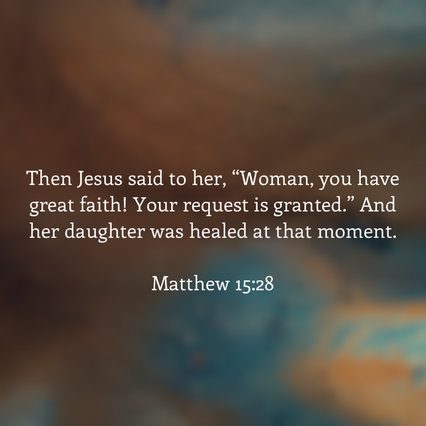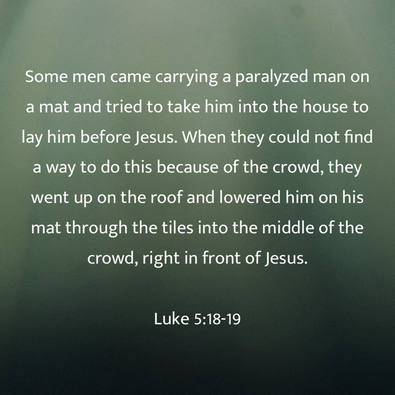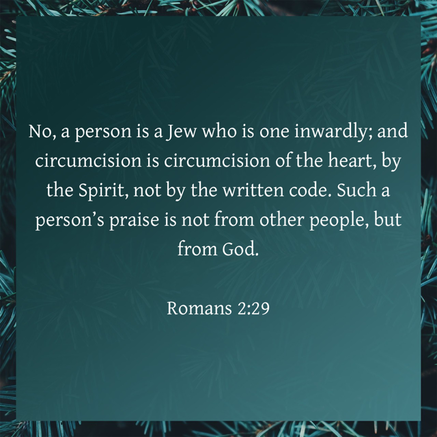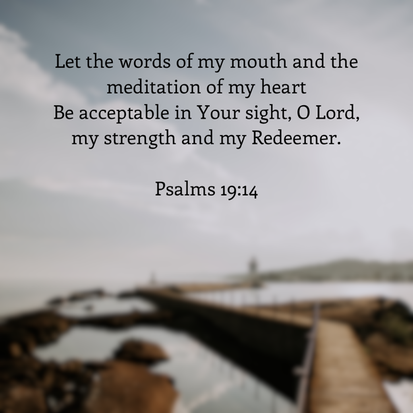|
Good morning!
We're so glad you decided to join us today!
When we meet in person, we share our joys and concerns. Take some time to consider the past week, and any prayer requests you might have. You can share these in the comments. Today is also the last Sunday before Thanksgiving and before Advent starts. What are you thankful for at this time? We would love for you to also share something you are thankful for. When you are ready to start the lesson, use this prayer written by Samuel F. Pugh to get started.
O God, when I have food,
help me to remember the hungry; When I have work, help me to remember the jobless; When I have a home, help me to remember those who have no home at all; When I am without pain, help me to remember those who suffer, And remembering, help me to destroy my complacency; bestir my compassion, and be concerned enough to help; By word and deed, those who cry out for what we take for granted. Amen.
Today's lesson is on Ephesians 2:1-10.
Lesson Context
Paul wrote his letter to the Ephesians while he was a prisoner of the Roman Empire. If he wrote during his imprisonment in Rome mentioned in Acts 28:30-31, then he was living in his own rented house and could receive visitors. These visitors could be both his fellow Christian workers and those interested in hearing more about Jesus. He was not in a dark dungeon, as we might imagine a prisoner to be. Paul's prison letters do not suggest that the misery of his condition dictated his outlook. After all, he could not move about as he pleased. He faced the threat of a judgment against him that could mean his execution. Paul repeatedly emphasized that Christians have an exalted place in God's plan. Paul's readers were also in a difficult position. Their new faith put them at odds with the world around them. Many of their familiar relationships had been cut off. Those with Jewish backgrounds were sometimes no longer welcome in the synagogue. Those of Gentile background were no longer to participate in the worship rites of paganism. Christians were suspected of wanting to undermine the foundations of their communities. Paul's message to the Ephesians emphasizes the perspective of God. From God's throne, Christians are not downtrodden but victorious. They are not rebels against the community but God's agents of renewal for the world. Then and now, Christians are the grateful recipients of everything God has done. We live together as God's temple. But this status is not something we have deserved or earned. The work was all God's.
1. Dead in Sin (verses 1-3)
Paul's opening moves from God's display of power in Christ to the results for humanity. Spiritual death is a consequence of our transgressions and sin. Being guilty of rebellion against God makes us deserving of death. Death is the consequence of sin. To die in one's sins is to be eternally separated from the Lord, with no hope of life following death. Paul talks about "the ruler of the kingdom of the air." Our book says Paul and his readers were acutely aware of evil influences that attacked them. The leader of evil spiritual forces is unnamed here but corresponds to the devil later (Ephesians 6:11-12). It also says that "of the air" refers to the spiritual nature of the influences. Before they came to love and submit to Christ, Paul's readers may have believed themselves to be free. But that was not always the case. First, they had followed the ways of this world. Second, they were serving the ruler of the kingdom of the air. Third, all people have been driven by personal cravings of our flesh, and its desires and thoughts. Because of this, everyone deserved the wrath of God. Anyone outside of Christ deserves this fate. Our book notes that Paul says "by nature," indicating that we have an inherent tendency to sin. This means that no one can live a perfect life. We cannot earn salvation.
2. Alive in Christ (verses 4-10)
The only reason we do not face God's wrath is because of his love and mercy. Without that, we would have no hope. Life before Christ was one of being dead in transgressions. But as Christ has been raised from death to resurrected life, so too are we made alive. We are already transferred from death to life. But it also promises a resurrection to come. Even more, just as we are resurrected from the death of sin with Christ, we ascend with Christ to the heavenly realms. By God's grace, we share Christ's victory. We will serve as a demonstration of God's marvelous grace forever. But this salvation is by grace. The salvation God offers is of no effect unless accepted through faith on the part of the one who is dead in sins. Our book explores a little bit of the original Greek in verse 8. Our translation reads: "For it is by grace you have been saved, through faith—and this is not from yourselves, it is the gift of God--" Greek nouns and pronouns have genders (male, female, neuter) that must match. Both the Greek words for grace and faith are feminine. There are two pronouns in bold in the verse as written above. The word translated this is neuter, which matches neither grace nor faith. The word it has been added to help reading in English. So our book says that the gift of God being referred to is actually God's system of salvation. There are no works we can do to be saved. There are no actions we can take to make us worthy. At times, everyone will have failures, yielding to self-centeredness and gratification. We have no room for boasting, only humility. While works will not save us, we should have purpose. We are instruments of good works. I think this is best summarized in James 2:18b, "Show me your faith without deeds, and I will show you my faith by my deeds."
Conclusion
If we are new to faith, we may feel overmatched by our calling. If we have followed Christ for a long time, we may fall into a habit of thinking we deserve any good things or benefits we have. Paul reminds us to focus on Christ's abundance. Though our best is never good enough, we stand with Christ by his action. Whatever is good in our lives is now the result of freely receiving God's gift.
Prayer
O God, your mercy is everlasting, and your truth endures through the ages. May we receive your gracious gift afresh. And may we, as your handiwork, live lives that fit the richness of your grace. In Jesus' name we pray. Amen.
Questions for Discussion
Benediction
Today's benediction is from the New International Version.
Next week's lesson will be on Ephesians 6:10-18.
0 Comments
Good morning!
We're so glad you decided to join us today!
When we meet in person, we share our joys and concerns. Take some time to think about your past week. If you have any prayer requests, please feel free to share them as a comment on this post. When you are ready, use the prayer below (source) to get started.
Father God, we gather here today under your care and protection. Thank you for your lovingkindness that never fails us. We thank you for those with us, that you would guide our thoughts and actions to bring you glory. Strengthen us and fill us with your peace. May we love and serve each other as Jesus has shown us. Fill us with the Holy Spirit to do your good work on earth. Amen.
This week's lesson is on Ephesians 1:1-14.
Ephesians includes challenging language and ideas. Our scriptures text mentions many concepts that long have been debated.
On the road to Damascus, Jesus claimed Paul as his own messenger. His zeal previously misdirected toward murderous ends was used for the making of disciples for Christ. All this happened according to the will of God. Paul seems intent to explain his doctrine. Looking to what it means to those who are faithful in Jesus Christ. Holy people affirms that these believers were set apart from others because they belonged to God. This phrase had referred only to Israel until Jesus' time. Paul used this phrasing to emphasize that Gentiles were welcomed into faith in Jesus, on equal standing with their Jewish brothers and sisters who had to also accept Christ. It was not enough or even necessary to claim heritage in Abraham, because faith was and is the primary condition for determining whether one is part of the faithful. The lives of believers are different, even out of place in the world, because our identity is found in Christ, not in human families, clans or nation. Grace and Peace to you from God our Father and the Lord Jesus Christ. Peace was a typical greeting in Hebrew, a prayer for God’s blessing to fall on his people . Grace acknowledges that asking for peace is totally based on God’s good desires, not on anything a person or people have done to earn his favor. Together Grace and Peace turned an otherwise unremarkable greeting into an expectant expression of God’s blessings. Naming God our Father in Parallel with the Lord Jesus Christ highlights the Christian revelation of the Son’s equality with the Father. Unbelieving Jews considered this new Christian belief a sin against the command to love Lord alone. However, naming Jesus Christ as Lord makes clear that Paul and other Christians understood that Jesus was well worthy of love and praise, just as God the Father is. Because we are already part of God’s family, we experience blessing in his presence now, though we still suffer because of the fallen world around us. Before the creation of the world focuses on God’s everlasting plan. Though God’s choosing us may seem like a statement of predestination, it is actually a much broader statement of God’s loving intent for all people. We were all meant to be holy and blameless in his sight. The fall threw all people into a tailspin outside of God’s good plan. But God was unwilling to let sin take its natural course and condemn all people to death. So God set in motion the plan that would call us back to him in love. Jesus was that plan. And through his death he conquered both sin and death, doing what we could not accomplish for ourselves. Our status changes as a result. We are counted as being holy (set apart in a godly way) and without blame (having our sins forgiven). We gain these attributes because of God’s efforts through Christ. Predestined echoes God’s pre-creation choice for people. Some scholars believe this means that everyone’s eternal status was decided by God before anyone was born. However, we should not fall into fatalism - the belief that free will does not exist, that we can make no choices that influence the outcome. God has chosen us by grace; we must choose him through our faith. The emphasis here is not on predestination but on adoption. God’s plan to adopt humans as his children in his holiness was fulfilled in Jesus Christ. Nothing that happened around Christ’s coming or in his ministry or his death and resurrection was haphazard, a fluke or a mistake. This act of loving mercy is described as coming from his pleasure and will. God’s desire is for us to be reconciled to him, to be included among his people. Inclusion into God’s family is a marvelous demonstration of God’s love. Our adoption results in full acceptance as children of God, with all the rights of an heir. Redemption and forgiveness are both terms used to speak of the liberation of slaves. Through the blood of Jesus, we have the means to be delivered from wrong choices and be put back on the path of God’s choosing. In the Bible there are various ways that God makes his will known to humans. One is that of a mystery being revealed, something initially hidden from human understanding but now being shown. We understand God as a self-revealing God, for we cannot unravel the deep things of God by our own deep thinking. The barrier between Jews and Gentiles is broken down through Christ: these groups can be brought together in Christ according to God’s will and purpose. Bringing everything together in Jesus will not be fully realized until he returns but let us not miss how Christ is already accomplishing this promised future. Whenever by God’s mercy a sinner becomes a saint, whenever through the gospel the estranged are reconciled, whenever through their lives of loving service Christians bring a greater measure of justice to the world, we see God’s plan already being fulfilled. After we accept the message of truth , the gospel, we are in line for a marvelous inheritance. We do not wait to begin to enjoy the blessing of this inheritance, for we are sealed by God through the gift of the Holy Spirit. Believers experience God’s presence and power now, a taste of what we will experience in full when Christ returns. The future holds not only the final defeat of sin and its effects but also spiritual fulfillment and completion.
Conclusion
The ability to praise and worship God freely and properly is indeed a part of our inheritance and a manifestation of the Holy Spirit in our lives. While all his works offer opportunities to worship, our adoption into God’s own family is an especially joyful reason for praise. May we, who have brought into the Father’s family through his loving Son and his trustworthy Spirit, erupt in praise for our salvation. Prayer Glorious Father, we are in awe of your grace. Remind us always of our standing before you, even as we wait for your Son to return in glory, In Jesus’ name we pray. Amen Questions
Benediction
This week's benediction is from the Good News Translation.
Next week's lesson picks up where we left off with Ephesians 1:15-23.
Good morning!
We are so glad you decided to join us today!
When we meet in person, we share our joys and concerns with each other. Take some time to think about the past week. If you have prayer requests to share, you can add them to the comments on this post. When you are ready, use this prayer to get started.
Gracious God, forgive us for looking at people’s outward appearance, including our own, and believing that somehow a person’s external trait or ability is the most important qualification or disqualification for service. Help us to understand that you created us and that we are acceptable and able just as we are, as long as our hearts are set on following you and becoming more like Jesus.
Help us to see so-called flaws and disabilities not as negative factors but as qualities that make us unique and human. Help us to see them as opportunities to relate to others who may have issues regarding their self-worth. And help us to show them by example that you call all of us to love and respect and value each other, regardless of outward appearances. We pray this in the name of Jesus Christ our Lord. Amen.
Today's lesson is on 1 Samuel 16:1-13.
Good morning!
We're so glad you decided to join us today!
When we meet in person, we share our joys and concerns. Take some time to think about your past week. If you have any prayer requests, you can add them as a comment to this post. When you are ready, use the prayer below (source) to get started.
Father, we thank You for Your spirit-inspired word. Thank You for the ones before us who surrendered to Your voice and obediently recorded Your words through personal encounters with You. Holy Spirit, we ask that You come and have Your way in our hearts and that if there is even one doubt in our minds about the validity of Your Scriptures, that You would illuminate Your holy truth. We invite You to teach us what aligns with who You are and who You say we are. Enlighten every dark place in our souls. Thank You for this time in Your presence. Amen.
Today's lesson is on 1 Samuel 8:4-7; 10:17-24.
Lesson Context
The books of 1 and 2 Samuel in the Old Testament are included with the twelve historical books. They record the transition from being governed by the Lord to being governed by an earthly king. The period of the judges lasted more than 300 years, from 1380 to 1050 BC. The judges administered justice and served as God's chosen military leaders when the people were oppressed by foreign invaders. During this period, the Israelites sinned, God punished them with foreign oppression, the Israelites repented, a deliverer came, and peace followed. In his transitional role, Samuel is sometimes referred to as the last of the judges, and the first of the prophets. He was one of the greatest of Israel's judges. After freeing the country from oppressors, he established a circuit court to administer justice. His decisions were respected, for they were according to the law.
1. The Call for a King
1 Samuel 8:4-7 After the death of a judge, such as in Judges 3:7-4:7, there could be a crisis in the leadership of Israel. With no judge in place, the Israelites seemed to repeat the pattern of falling away from God. Samuel, the judge at the time, was getting old. The elders of Israel, the leaders of the families and clans, were concerned about what would happen after Samuel's death. This could have been due to the repeated patterns of sin and being oppressed by a foreign people. This also could have been due to the greed of Samuel's sons. They would not have been trustworthy to guide the people with righteousness and justice. The elders of Israel suggested a solution: appoint a king. This suggestion displeased both Samuel and God. Up until that point, God had been the nation's leader. The judges were raised up by God when Israel needed them. Asking for a king was asking to be like all the other nations, and rejecting the leadership of God. Our book suggests that the elders did not understand that they were rejecting God.
Interim
After the first part of our text, and before the second, Samuel met Saul. God revealed Saul to be his choice for the first king. Samuel secretly anointed Saul.
2. Acclamation of a King
1 Samuel 10:17-24 At some time after meeting with the elders, Samuel summoned the people to Mizpah. This is where Samuel had orchestrated a victory over the Philistines that solidified his leadership role as the judge of Israel. Samuel then begins a speech echoing Moses' farewell speech, giving Israel insight and instruction for a future without Samuel. God had done so much for the people of Israel! But they had rejected him. Our book says this may have been a call to repentance. Samuel then had the people come forward to find the new king. Casting lots was a way of recognizing that God was making his choice. Proverbs 16:33 gives the view that it is the Lord who controls the outcome. In such a situation, one marked object was placed in a container with other items that were similar. The marked item was God's choice. First, the tribe of Benjamin was chosen. This was unexpected because Benjamin was the smallest and least influential of the tribes. Then, Matri's clan was chosen. Finally, Saul, son of Kish, was chosen. But he could not be found. He had hidden among the supplies. When Saul was brought forward, he was head and shoulders taller than anyone else. Our book says that his physical stature may have been a reassuring sight for someone the people expected to be a military leader. At the end of our passage, the people shout, "Long live the king!" This is a prayer to the Lord. Though the people's desire was at its heart a rejection of the Lord, they did not desire to lose the Lord's blessings and protection.
Conclusion
Despite the people rejecting him, the Lord chose not to abandon them. He sometimes punished them, but he continued to love his people and work through them. The same goes for us. We may make decisions that do not always follow God. But God does not abandon us or stop working through the church. He has the power to use even our worst decisions for his glory. Samuel and the elders were concerned for Israel's future, but they had very different plans for how to alleviate that worry. Similarly, leadership in churches look for the future of their congregations and of the worldwide church. When considering our plans, we must not discount the warnings of godly people who do not share a majority opinion. We have an ally in this endeavor that Israel did not: the presence of the Holy Spirit in the life of every believer. Prayer Lord God, forgive us when we value our judgment over yours. Help us examine our hearts and overcome those motivations that are a rejection of you. May we seek clarity from the Lord in every decision, resisting worldly wisdom so that we can continue to live out our calling as the priesthood of believers. In Jesus' name we pray. Amen.
Questions for Discussion
What situations tempt you to embrace cultural norms that contradict your identity in Christ? What strategies can you employ to go to the Lord with your anger and frustrations instead of losing your temper in the moment? What memories of God's goodness have encouraged you in times when trusting the Lord was especially difficult?
Benediction
This week's benediction is from the New Revised Standard Version.
Next week's lesson will be on 1 Samuel 16:1-13.
Good morning!
We're so glad you decided to join us today!
When we meet in person, we share our joys and concerns. Consider your last week, and any prayer requests you might have. If you feel comfortable, you can share them in the comments. When you are ready, use the prayer below (source) to get started.
Heavenly Father, I ask that you would speak to us today as we study Your Word. May every word, verse, and chapter cause our hearts to worship You more fully! Let this be a joyous time of study and fellowship in the Holy Spirit. In the name of Jesus, amen.
Today's lesson is on Judges 6:1-2, 7-16.
Good morning!
We're so glad you decided to join us today!
When we meet in person, we share our joys and concerns. If you have any prayer requests you would like to share, you can add them as a comment to this post. When you are ready, use this prayer (source) to get started.
Loving God, you love us so much that you invite us to a life of transformation. You call us to live outside ourselves, and to follow you more faithfully with each day that passes. We confess to you that we often fail to grow closer to you, and to grow together as a church. Please help us to humble ourselves to the point where we are willing to be transformed for you. Please renew our desire to faithfully follow you as we silently confess our sins to you now.…
Amen
This week's lesson is on Deuteronomy 32: 3-6, 10-14, 18.
Good morning!
We're so glad you decided to join us today!
When we meet in person, we share our joys and concerns with each other. Take some time to think about the past week. If you have prayer requests to share, you can add them to the comments on this post. When you are ready, use this prayer to get started.
Heavenly Father, we sometimes feel so small and weak in the face of life’s difficulties. We feel so unequipped to solve the problems that divide us. We feel so powerless to make a difference in our community and our world. In this moment, we offer what little we have, and we trust you to work out solutions in ways we would never have seen or imagined. Take our needs, our hopes, and our fears, and in their place give us your presence and your comfort. For we ask it in Christ’s name. Amen.
Today's lesson is on Exodus 2:1-10.
Good morning!
We're so glad you decided to join us today!
When we meet in person, we share our joys and concerns together. Take some time to think about the past week. If you have prayer requests to share, you can add them to the comments on this post. When you are ready, use this prayer from the Church of England to get started.
Living God,
deliver us from a world without justice and a future without mercy; in your mercy, establish justice, and in your justice, remember the mercy revealed to us in Jesus Christ our Lord. Amen.
Today's lesson is on Genesis 35:22b-26; 38:24-26; 49:10-12.
Good morning!
We’re so glad you decided to join us for Sunday School today!
When we meet together, we share our joys and concerns. Consider this past week. If you have any prayer requests you would like to share, please add them to the comments on this post. When you are ready, get started with the prayer below (source).
God,
we’re so grateful to be able to meet here together and be in your presence today. We know it’s a gift. Help us never lose sight of that. While we’re here together studying Your Word (the Bible) we ask that You’d open our ears and our hearts to whatever it is You are wanting to teach us. Help us to see things through Your eyes and not the lens of our own understanding. We want to know You more, God. Thank you for showing us who You are and helping us understand and walk in Your love. What we learn today we want to act on. Don’t let it become mere head knowledge. Shape our minds, hearts, and actions according to Your word. Show us how to honor you and love others well with what we learn. In Jesus’ name, Amen.
This week’s lesson is on Genesis 25:19b-34.
God provided Abraham and Sarah with a son Isaac. However, Abraham would have other sons by other women. Hagar, a servant of wife Sarah gave birth to Ishmael. After Sarah died, Abraham took another wife, Keturah, who bore him other sons. However, Abraham held Isaac in the highest regard. Isaac eventually married Rebekah. Abraham sent a servant to his ancestral homeland to find a wife for Isaac when Isaac was forty years old because Abraham did not want his son to marry a Canaanite woman. Together they settled in the southern part of Canaan, near the Sinai Peninsula.
Although Isaac found a suitable wife that’s was no guarantee regarding the continuation of the family line. Infertility had also affected Isaac mother Sarah. Both generations had to depend on God’s power in order to conceive. Isaac’s prayers were answered and Rebekah became pregnant. The babies jostled each other with in her, and she ask the Lord, “What is happening to me?” The Lord’s response, “Two nations are in your womb, and two people from within you will be separated ; one people will be stronger that the other and the older will serve the younger.” The right or inheritance of the firstborn was a crucial element of the ancient Near East’s social and legal systems. The Lord overturn this and told Rebekah that her youngest son would have greatest status and acclaim than the second child. The first born son came out hairy and red and was named Esau. The second son came out holding Esau’s heel and was named Jacob. The boys grew up and Esau became a skillful hunter, a man of the open country, Jacob was content to stay at home among the tents. Isaac who loved wild game love Esau and Rebekah loved Jacob. This favoritism will be repeated years later with Jacob with his son Joseph. Issac love for Esau and his hunting would be a factor in how Jacob and Rebekah plotted against Esau and Isaac regarding the father’s blessing. Esau came in from the open country and was famished and asked for some of the stew that Jacob was making. Jacob said he would give him the stew if Esau would sell him his birthright. The firstborn’s birthright would include a double portion of the father’s estate. Isaac was a wealthy man therefore the birthright would have been sizable. Esau said, “Look, I am about to die what good is the birthright to me?” Esau’s desire for immediate gratification led him to disregard the most important earthly thing that was his to lose: his birthright. This would have been a lifetime blessing. Jacob had Esau swear an oath. Esau risked divine judgement should he later try to deny or break the agreement. After his oath Esau was given bread and some lentil stew.
Conclusion
Readers should be unimpressed with the attitudes and actions of the individuals described in this lesson. Isaac and Rebekah each favored one of their sons over the other. Esau desired immediate relief over long term benefits. Jacob schemed and manipulated his brother for personal gain. A story that began with God’s love and power transitions into a story of people pursuing selfish interests. However, we need not idealized any one human character, because the Lord is the protagonist of this story. He alone can make good out of less than ideal circumstances and less than ideal people. God worked through this deeply flawed family, and he will work in the lives of all people whom he has called. People of God should not strive to force his hand. Instead, we should trust that his plans and purposes will be fulfilled regardless of any attempts to circumvent or force those plans. Prayer Father, we celebrate that you have chosen to work through us your people. Thank you for your faithfulness to us, even when we fail to live holy lives. Prepare us so that we can live out your purposes in the world. In Jesus’ name. Amen Questions
Benediction
Our benediction this week is from the New International Version.
Next week's lesson will be on Genesis 32:22-32.
Good morning!
We're so glad you decided to join us today!
When we meet in person, we take some time to share both joys and concerns. If you have any prayer requests or any expressions of joy, you can add them in the comments below this post. When you are ready, use the prayer below (source) to get started.
Heavenly Father, thank You for the beautiful example of Abram who by faith in Your Word has become the biblical example of a man who believed in the Word of the Lord - and who simply trusted in the promises of God. Thank You for the Bible and the many precious promises and truths that it contains. Help us to listen to Your voice and obey Your call - to Your praise and glory.. in Jesus name we pray, Amen.
Today's lesson is on Genesis 12:1-5, 7; 15:1-7.
Introduction
The first 11 chapters of Genesis recount humanity’s futile attempts to rely on self-control to preserve a relationship with God and our equally futile attempts to make ourselves God. When those efforts failed, God turned to another method to reach out to humans. God made a covenant with a particular man of faith to bless the human race through him. (Most theologians would say that God understood from the start that a covenant based on God’s faithfulness alone would be the only way to bring us into relationship with God.) The man was Abram, and he lived in the Mesopotamian city known as Ur of Chaldeans. It was a wealthy city whose people practiced pagan religious rituals, according to modern archeology. The call announced (12:1-5, 7) But God called Abram to leave that place and to go to a place that God would show him. Besides being the starting point of a monotheistic relationship for Abram, it was an act of faith. In the ancient world, a person’s identity and social standing were attached to their family and ancestors. In addition, security and protection were also found in the clan. God was calling Abram to leave all of that and to trust God, with the promise that Abram would be blessed, that Abram would be great, and that through him all people on earth would be blessed. So Abram went, as the Lord had told him, taking with him his wife Sarai and his nephew Lot and all of their immediate family and their belongings. When they reached Canaan, the Lord again spoke to Abram and told him this is the land God will give him and his descendants. And Abram built an altar there to commemorate the epiphany. The call affirmed (15:1-7) Far away from home and in a dangerous and unknown land, Abram must have been uneasy. However, God appears to him again, telling him not to be afraid and that God himself would be his shield and his reward. Finally, we hear Abram’s response. The obvious question is how is God going to make him a great nation when Abram has no children. Abram was 75 years old when he left Harran so he is already well advanced in years, as is Sarai. However, God assures him that he will have a son, his own flesh and blood and that, through that son, his descendants will be as numerous as the stars in the sky. Abram believed God. Abram trusted that God would somehow fulfill his promise, even if he could not see how. Abram knew what his descendants would someday find out: the Lord is faithful and keeps his promises.
Conclusion
Abram had to answer a difficult call with boldness, courage, and faith. God had placed the call, and Abram answered by relocating his family. This decision would radically change his life and the loves of others for centuries. There will be times in the life of a believer when the challenge is not to find God’s will but to follow God’s call. This call may lead to a different job, a new neighborhood, or even to an unknown land. Yet if we remain faithful to God and trust in his steadfast promises, he will bless us deeply. Prayer God, throughout history you have shown yourself to be faithful. Give us faith to follow your call and patience to trust you. In Jesus’ name. Amen.
Benediction
Today's benediction is from the New International Version.
Next week's lesson will be on Genesis 25:19b-34.
|
AuthorWe are a small, rural Presbyterian church in southwestern Pennsylvania. Archives
July 2024
Categories
All
|











 RSS Feed
RSS Feed